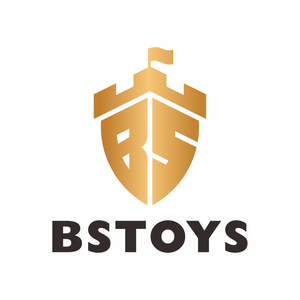Search
1/7
₱129.00
₱165.00-22%
Buy 2, save 1%
BS Mini Ice Cream Candy Car Toy Sweet Dessert Cart Ice Cream Cart Toy For Girls
Sold by BS MiniToy Shop
4.6(849)
5.5K sold
Select options
Select
Shipping
From ₱118.00
Est. delivery by Apr 19 - Apr 21
Specifications
Customer reviews (849)

C**e J**s E**a
Item: Frozen
Mali ang na recieved ko na item. Ice cream mini inorder ko but kitchen mini dumating But thank you na din .


May 25, 2022

M**y S**᭡
Item: Little Pony
Ang ganda po 😊 thanks seller

June 23, 2022
G**L
Item: Hello Kitty
Nice kau sya kaso guba kau ang karton pag abot mau nalang ky okay ang mta dulaan ganahan kau akong chikiting😊




July 4, 2024

@**T
Item: Frozen
Ang ganda nagustohan ng anak ko❤️ legit safe packaging.tinulungan pa ng papa nya pag Assemble ng laruan.. 🙂




More
October 27, 2023

J**t
Item: Frozen
Very good set you it's the same exact design. Thanks seller



January 30, 2024

J**h D**a
Item: Little Pony
Ang ganda sulit na sulit sa Presyo

June 27, 2022

S**🏻
Item: Little Pony
Mabilis ang shipment and maayos naman ang item. Happy talaga si baby ko


March 5, 2024
N**o
Item: LOL
Yey new toys for my baby girl! Super affordable and cuteee! Happy ang baby girl! 💘😍b


May 13, 2023
S**g
Item: Hello Kitty
Love talaga nang anak k🥰🥰🥰🥰🥰🥰🥰🥰🥰🥰🥰🥰🥰🥰🥰🥰🥰🥰🥰🥰🥰🥰🥰🥰🥰😘😘😘😘😘😘😘😘👍👍😘😘😘😘😘

August 31, 2024
a**3
Item: Hello Kitty
Ganda ng quality super happy anak ko thanks seller worth namn po ang pagwait🥰

July 7, 2024

V**4
Item: LOL
Thank you po, tuwang tuwa po yung anak ko. Maganda at kompleto po siya.

December 10, 2023

j**e
Item: Little Pony
Ang ganda po ar nagustuhan ng anak ko , maganda din yung quality niya 👍

November 29, 2023

a**8
Item: Frozen
Thank you so much seller nagustuhan ng mga babies ko❤❤

November 8, 2023

t**a
Item: Frozen
Tnx po Ang bilis dumating Masaya Ang anak ko thank you sa nag delever Ang bilis talaga

June 11, 2023

n**i
Item: Frozen
Super cute nagustuhan ng pamangkin ko❤️❤️


December 25, 2023

M**e
Item: Frozen
Costumer Satisfied!




More
October 30, 2022
A**💞
Item: Frozen
i ordered 6 items only 5 items arrived😓

October 4, 2023
C**e
Item: Little Pony
Perfect for xmas gift for kids... True to video and pictures.... Excited to give it to my inaanak
December 18, 2024

BS MiniToy Shop
262 items
Shop performance
Better than 84% of other shops
Ships within 2 days
79%
Responds within 24 hours
99%
About this product
- Interest:Learning
- Child Gender:Unisex
- Country Of Origin:Mainland China
- Warranty Duration:No
- Warranty Type:No
- Manufacturers:ice cream
- Battery in Product:No
- Age Warning:No
- Quantity Per Pack:1
Product description
Mini Ice Cream Candy Car Toy Sweet Dessert Cart
Playing with kitchen toys can be an important activity for children for several reasons:
•Encouraging imaginative play: Pretend to play with kitchen toys allows children to use their imaginations and engage in role-playing, which helps them develop their creativity and social skills.
•Learning practical life skills: Playing with kitchen toys can help children learn basic practical skills, such as how to use utensils and appliances, and how to follow simple recipes.
•Promoting language development: Role-playing with kitchen toys encourages children to engage in conversation and develop their language skills, as they discuss food, cooking, and other related topics.
•Fostering a sense of responsibility: Playing with kitchen toys can help children learn about the importance of taking care of their belongings and keeping their play area clean and organized.
•Building social skills: Playing with kitchen toys with siblings or friends can help children learn to share, take turns, and work cooperatively, which are important social skills.
•Developing an interest in healthy eating: Through play, children can learn about different types of food and how they can be prepared in a healthy and delicious way, which can help promote healthy eating habits.
Overall, playing with kitchen toys can be a fun and educational activity for children, helping them develop a range of important skills and abilities that they can use throughout their lives.

Videos for this product
Similar items in this category

 4.85136sold₱249.00₱311.25
4.85136sold₱249.00₱311.25
Explore more from BS MiniToy Shop

 4.712013sold₱38.00₱100.00
4.712013sold₱38.00₱100.00
 4.74226sold₱180.00₱250.00
4.74226sold₱180.00₱250.00

 4.78044sold₱15.00₱40.00
4.78044sold₱15.00₱40.00



₱148.20
₱260.00





4.4
355sold
₱103.55
₱109.00

4.6
65sold
₱150.00
₱399.00






₱160.00
₱320.00



No more products
Open TikTok



















